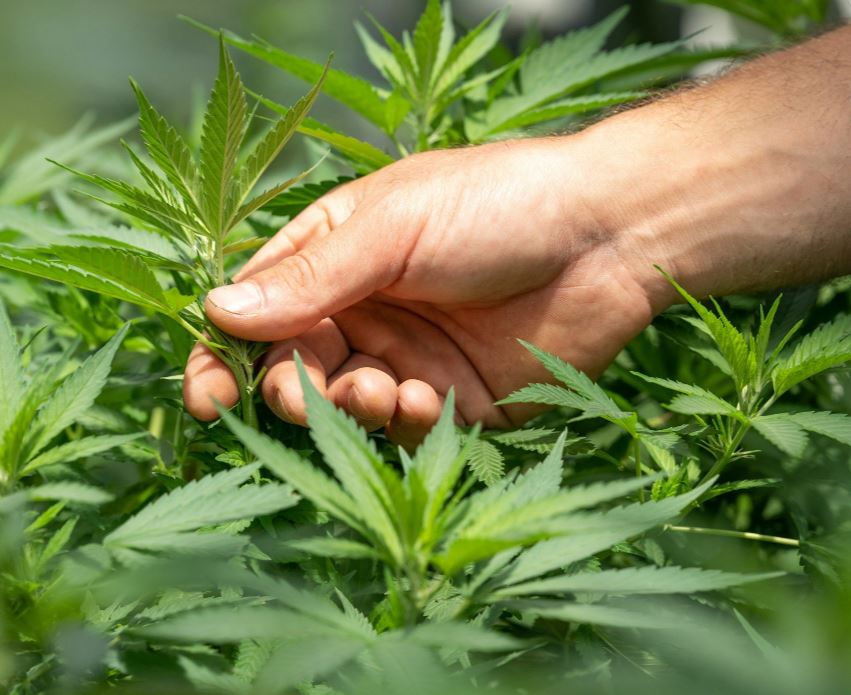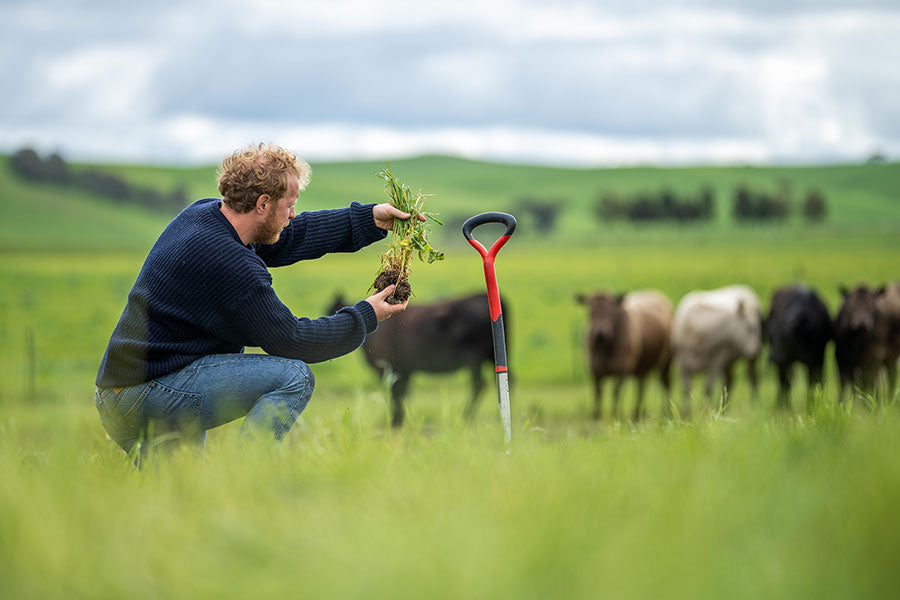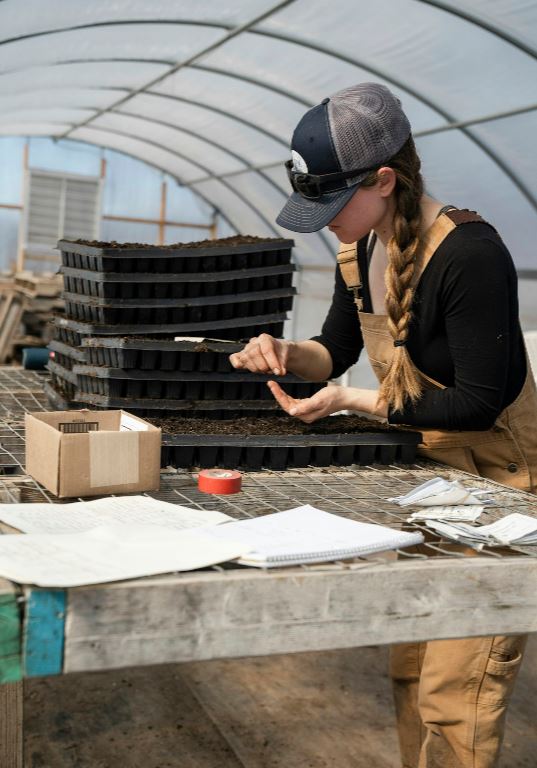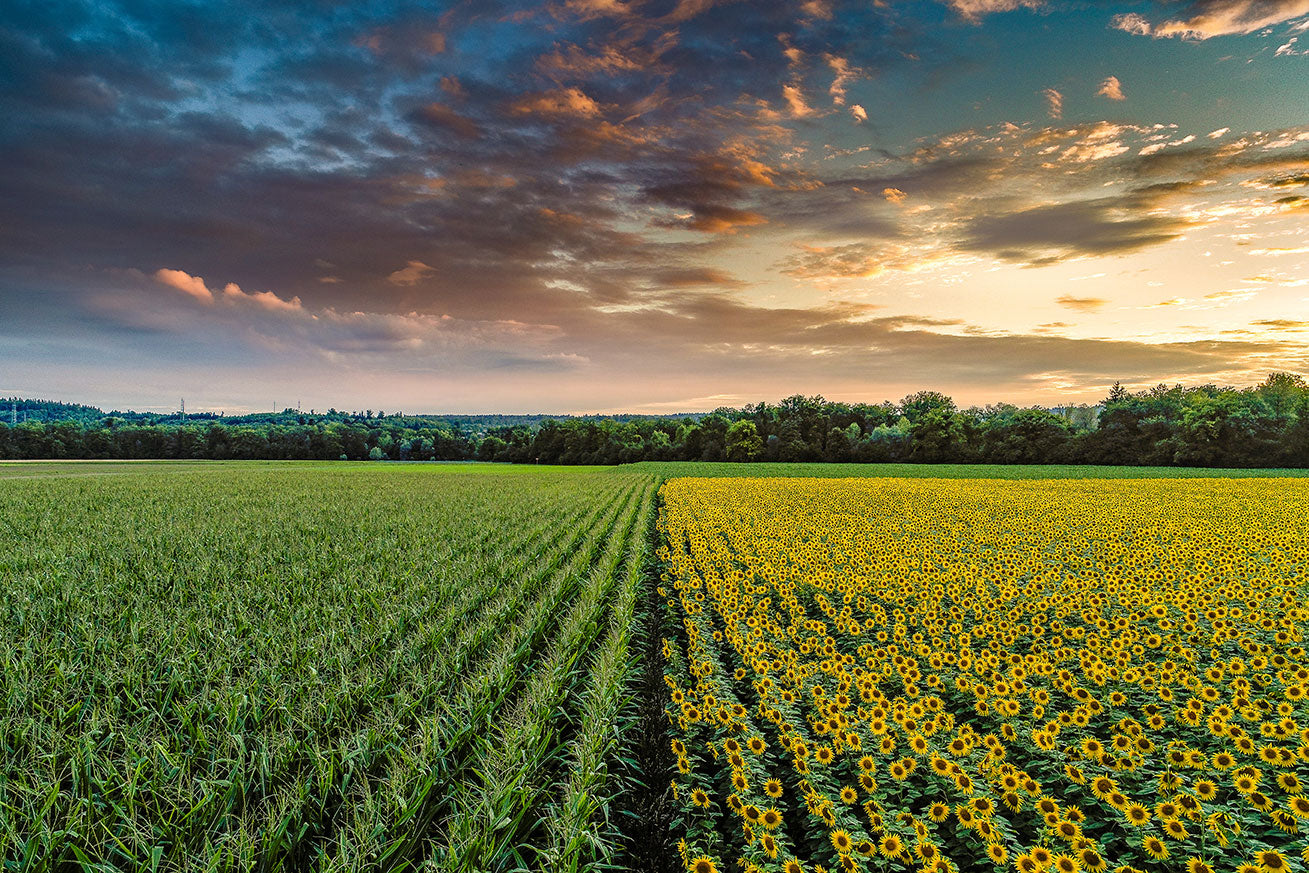Farming at Fort 20 Farms

At Fort 20 Farms we use an agricultural approach that emphasizes the restoration and enhancement of soil health, biodiversity, and ecosystem function. We go beyond just sustainable farming by actively improving the land and environment through specific practices.
We focus on soil health by planting cover crops to protect and enrich the soil, preventing erosion and maintaining soil structure. We use no-till farming to minimize soil disturbance to preserve soil structure, increase water retention, and promote beneficial soil microorganisms. We use compost to add organic matter and nutrients back into the soil, enhancing its fertility and microbial activity.

General Farming
To maintain our biodiversity we grow a variety of crops together to mimic natural ecosystems, improving resilience against pests and diseases. We also integrate trees and shrubs into our crop and livestock systems to enhance biodiversity, provide habitat for wildlife, and improve soil health.
Being aware of our impact on the environment and to minimize our impact we have implemented water usage systems like drip irrigation to reduce water use and prevent runoff as well as collecting and storing rainwater. We move livestock between pastures to allow for regrowth and soil recovery, thus enhancing nutrient cycling and reducing overgrazing. We put different species of livestock to graze together, optimizing land use and improving soil health.
Through all the above we have minimized the use of synthetic fertilizers, pesticides, and herbicides, relying instead on natural alternatives and biological controls.
We take a holistic approach to agriculture that seeks to restore and enhance the land, rather than merely sustaining it, providing long-term benefits for the environment, farmers, and society as a whole.

Cannabis Cultivation
We take the same care when it comes to our state of the art indoor cannabis cultivation. We utilize cultivation methods that prioritize environmental sustainability, soil health, and the avoidance of synthetic chemicals. We use natural compost, manure, and other organic matter to enrich the soil and introduce beneficial insects, such as ladybugs and predatory mites, to control pest populations. We grow certain plants alongside cannabis to naturally repel pests and attract beneficial insects and use plant-based oils and extracts like neem oil to deter pests without synthetic chemicals. Nutrients are provided using natural sources such as fish emulsion, kelp, bone meal, and rock phosphate and we recycle organic waste to create compost, which adds essential nutrients and improves soil health. Finally, we implement practices to reduce, reuse, and recycle materials, minimizing waste production.
This approach to growing cannabis ensures that our final product is largely free from synthetic pesticides, herbicides, and fertilizers, aligning with our broader farm-based agriculture principles.


